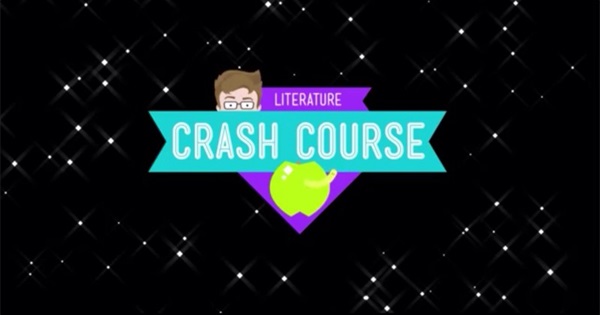Much like Hannah Feustle, I was reminded while reading Framing Remix Rhetorically of a video that I watched in one of my high school English classes—a CrashCourse video discussing Things Fall Apart by Chinua Achebe.
“We are just trying to create educational content in the hopes that it will be useful to people” John Green says in the introduction video to the YouTube page. Just like Thug Notes, CrashCourse is a webseries targeted specifically for teachers and students in which novelist John Green and his brother Hank Green discuss a variety of topics ranging from literature to history to biology to philosophy. Focusing on the literature videos, there are ones for Romeo and Juliet, Great Gatsby, and other classic novels as well as some poetry. Each video begins with John Green giving a little background information on the historical and social context surrounding the novel, poem, etc. After that, Green dives into all of the main events of the piece by going through a timeline, pulling quotes, and providing animations for the viewers to follow along with. These quotes and animations are reinforced by thought bubbles, stock photos, and sidebars while Green is talking. By using pulled quotes and paraphrasing events, Green is able to avoid copyright issues by giving credit where credit is due.
In Framing Remix Rhetorically: Toward a Typology of Transformative Work, Dustin Edwards talks about various types of remix; the CrashCourse videos, out of the four types that Edwards mentions, would definitely fall into the redistribution category. “Redistribution refers to sharing or adding to an already existing text for the purpose of reaching a new audience, offering an updated message, and/or spreading a text further” (Edwards 49). By focusing on classic literary works, John Green is able to explain the plots in language that is familiar to students and in a more modern context by providing anecdotes and animations.
Since these videos are meant to be used by students reading texts that have already been in circulation for years, Green draws “on the rhetorical force of a shared and common text” (Edwards 49). Other than the brief intro to the book and the author, Green doesn’t worry about providing too much context surrounding the pieces because they’ve been around for a while and is able to dive deeper into the plot of the pieces, dissecting what is happening for the viewers to consume.
Educational videos, like the ones from CrashCourse, are becoming more and more popular in high school classrooms to help students understand the concepts and themes in many popular classics; and none of this would be possible without the power of remix.
Word Count: 439
Works Cited
Edwards, Dustin W. Framing Remix Rhetorically: Toward a Typology of Transformative Work. 24 Dec. 2015.
